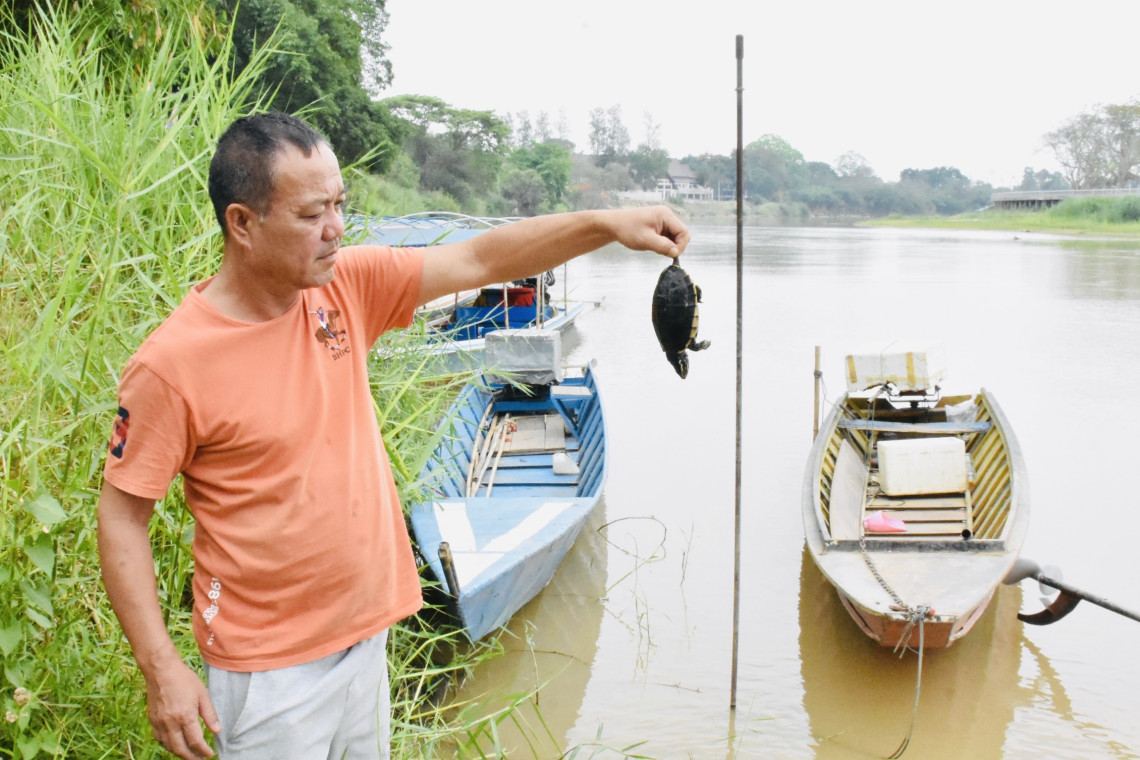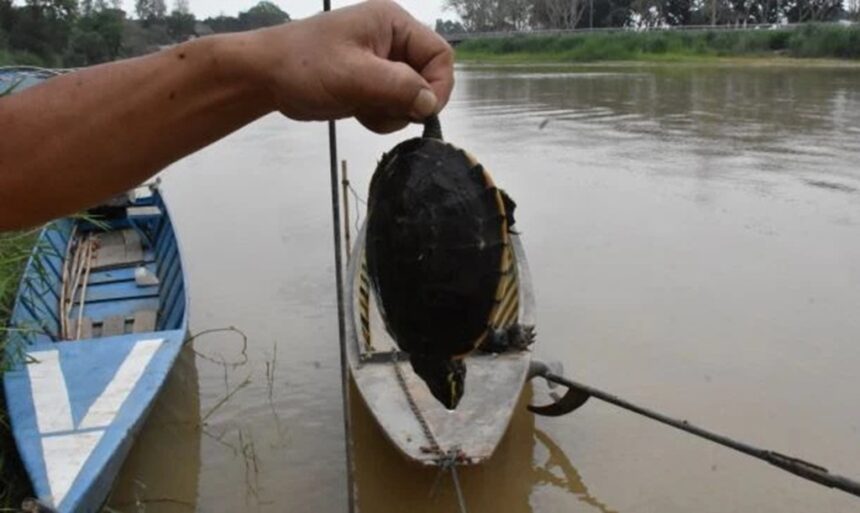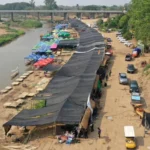Chiang Rai – On Thursday, experts and residents in Chiang Rai h urge the government to engage with Myanmar, Wa State authorities, and Chinese stakeholders to tackle pollutants in the Mae Kok River caused by Chinese-funded mining operations.
The mines gold are releasing arsenic and heavy metals into the Mae Kok River, exceeding safety limits from Mae Ai District in Chiang Mai to Chiang Rai Province. This pollution is harming people, livestock, and the local economy. There’s a push for real-time monitoring systems to better manage the crisis.
The Pollution Control Department (PCD) under the Ministry of Natural Resources and Environment revealed alarming levels of arsenic in the Kok River, which originates in Myanmar’s Wa State before flowing into Thailand. Tests showed contamination levels as high as 0.026 milligrams per litre in Mae Ai, Chiang Mai, and 0.012-0.013 milligrams per litre in Chiang Rai, exceeding the safety standard of 0.01 milligrams per litre.
Dr Suesakul Kitchanugorn, a social innovation expert from Mae Fah Luang University, Chiang Rai, proposed a two-fold solution. Domestically, he suggested forming a task force involving government agencies, civil society, academics, and private businesses.

He also called for establishing a “Water Quality Monitoring Centre” in Chiang Rai to provide accurate, real-time data for immediate action. He noted that Chiang Rai’s universities, including Mae Fah Luang University, Rajabhat University, and Rajamangala University of Technology, could host such a centre.
This would eliminate delays caused by sending water samples to Chiang Mai, which can take weeks for results.
On the international front, Dr Suesakul urged the Thai government to hold four-way discussions with Myanmar authorities, Wa leaders, the Chinese government, and the mining companies involved. He emphasised the need for comprehensive measures, including relocating mines that are too close to waterways, to prevent further harm.
“If these four parties don’t collaborate, the issue will persist. Arsenic will continue to wash downstream, affecting communities and ecosystems from Mae Ai to Chiang Saen. With the rainy season approaching, runoff will worsen, causing more sedimentary pollution,” Dr Suesakul warned.
He stressed the urgency of addressing this issue, pointing out its widespread impacts on health, the environment, and the economy. Fishing communities are losing their livelihoods as aquatic life diminishes, while businesses tied to tourism, such as river cruises, elephant tours, and riverside restaurants, are also suffering—especially during key holiday seasons like Songkran.
“This isn’t just an environmental problem—it’s a social and economic crisis that affects every part of our community,” he concluded.
Warning to residents along the Kok River in 6 districts of Chiang Rai
Meanwhile, on April 9, 2025, fisheries officers from Chiang Rai, in collaboration with the Phayao Freshwater Fisheries Research and Development Centre, collected water samples from the Kok River behind the Chiang Rai Fisheries Office.
The samples were sent for further analysis due to concerns about heavy metal contamination.
Initial findings, shared by Nattarat Porndechanan, the Chiang Rai Provincial Fisheries Officer, indicated that water quality remained within normal parameters. Dissolved oxygen levels were stable, and no unusual behaviour was observed in aquatic life along the riverbanks. Juvenile fish appeared healthy with no signs of weakness.

Similarly, in Rim Kok Subdistrict, Adithatorn Wanchai Thanawong, President of the Chiang Rai Provincial Administrative Organization, along with other related agencies, inspected and collected samples of village tap water for further testing.
Results showed that the quality of the Kok River water ranged from fair to poor. As a precaution, residents in riverside areas across six districts were advised to avoid contact with the water and refrain from using it for daily needs until the situation improves.
Former human rights commissioner and senator, Tuenjai Deetes, called on the government to address the issue of Kok River contamination as a national concern. She emphasized that the Kok River is an international waterway shared by multiple countries.
The discovery of arsenic and lead in the water poses a serious threat to the livelihoods of communities along the river.
She further stressed the importance of cross-border collaboration to address activities that could harm shared waterways. Despite the Kok River and Sai River being jointly used by Thailand and Myanmar, no cooperative measures have been established between the two nations.
Tuenjai also urged the government to prioritize this issue, pointing out that the Kok River is a lifeline for communities in Chiang Mai and Chiang Rai. Damage to its ecosystem would have long-term consequences.
She advocated for sustainable negotiations and solutions to protect the river and its surrounding areas.














